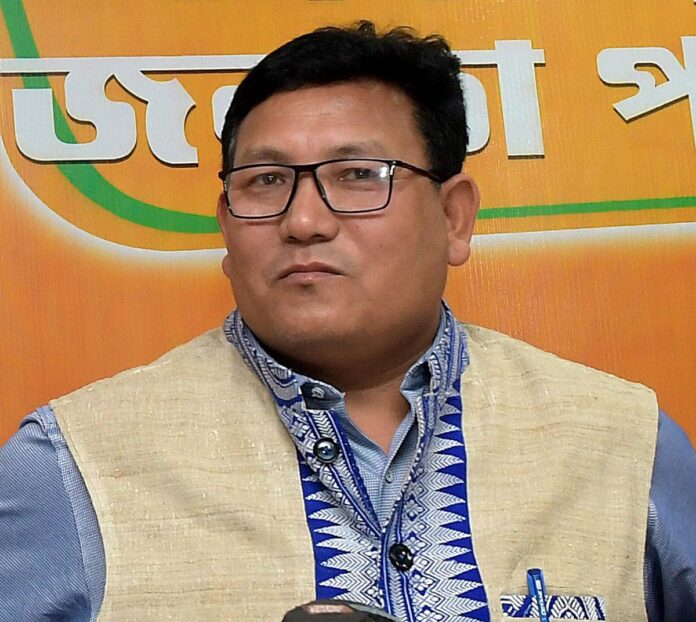Kokrajhar (Assam) [India]: Bodoland, a vital region in Assam comprising Kokrajhar, Chirang, Baksa, Udalguri, and Tamulpur—bordering Bhutan—is on the verge of a significant economic transformation, thanks to the upcoming Gelephu Mindfulness City in Bhutan and the proposed Kokrajhar-Gelephu railway project.
Speaking exclusively to ANI, Pramod Boro, Chief of the Bodoland Territorial Council (BTC), said the new projects will usher in a new economic era for the region.
“Bhutan’s vision for a Mindfulness City in Gelephu, along with India’s railway project connecting Kokrajhar to Gelephu, will transform our region into a thriving economic corridor,” Boro said.
A Game-Changing Railway Project
The 69.04 km Kokrajhar-Gelephu railway line, estimated at ₹3,500 crore, is expected to redefine India-Bhutan ties by offering Bhutan its first-ever railway link. The route includes six new stations: Balajan, Garubhasa, Runikhata, Shantipur, Dadgiri, and Gelephu.
According to Northeast Frontier Railway, the project also involves:
- 2 key bridges
- 29 major bridges
- 65 minor bridges
- 1 Road Over Bridge
- 39 Road Under Bridges
- 2 viaducts
With the Final Location Survey completed and the Detailed Project Report submitted, the project aims to enhance cross-border trade, tourism, and connectivity, positioning Bodoland as a regional trade and transit hub.
Push for Article 280 and Greater Autonomy
BTC Chief Boro emphasized the need to include Sixth Schedule councils in Article 280 of the Constitution to allow direct funding through the Finance Commission.
“We have no financial powers. The centre’s funds can’t reach us without state approval. Article 280 will empower councils like ours to directly access central support,” Boro stated.
He added that Bodoland is the third most populous region in Northeast India, yet lacks adequate representation and financial independence due to being a council, not a state.
Governance Overhaul and Grassroots Revival
Boro criticized past BTC administrations for failing to implement schemes and for financial irregularities. He said the current council has been focused on:
- Strengthening governance systems
- Reviving agriculture and irrigation
- Boosting handloom and sericulture industries
- Launching the Odofa Livelihood Mission to enhance rural employment
- Using data analytics to improve education and human resource development
“We’re bringing back youths working outside Bodoland, reconnecting communities, and leveraging our rich culture and handloom sector for economic growth,” Boro noted.
Vision for the Future: Peace, Sustainability, and Innovation
Looking ahead, Boro said peace would remain a top priority, along with sustainable development and infrastructure growth.
Plans include:
- An International School of Peace and Happiness
- Skill development centres and state-of-the-art sports facilities
- Expansion of the Bodoland Green Mission, which has already restored over 800 sq km of forest
- Declaration of two national parks, with another wildlife sanctuary in the pipeline
“We want Bodoland to match any developed region in India. With sustained peace and visionary planning, we can achieve this in the next 5–10 years,” Boro said.


